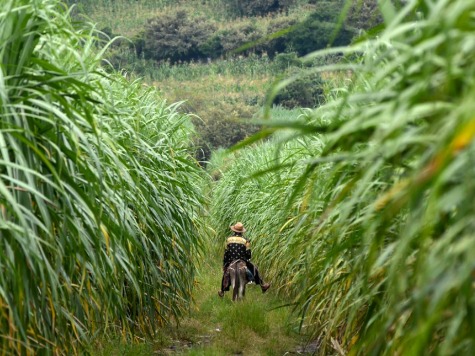
As many as 20% of men working in sugar cane fields in Honduras, Nicaragua, El Salvador, and Costa Rica may be suffering from chronic kidney disease and not know it, according to new research on finding an epidemic of unknown origin in the region.
CNN reports that chronic kidney disease has affected significant portions of the male population in towns in Central America, most of whom work in agriculture. While many have been affected by the disease for years, overt symptoms do not begin until late in the disease’s trajectory, making it too late for many once they are diagnosed to fight the deterioration of their kidneys.
At least 20,000 people have died prematurely from the disease in the region, according to CNN’s estimates. The disease is particularly baffling because it is affecting young men. While chronic kidney disease is a problem in the United States, its appearance without apparent origin usually occurs in the elderly.
Some have speculated that it has been affecting Central American agricultural workers not because of anything inherent in the agricultural work, but because of factors to which the work contributes, such as poor eating and long hours. According to Honduras’s Guía Médica, contributing factors to the disease include “environmental factors, lack of regular hydration and high consumption of fructose.” The medical guide’s description of the disease, which they call Mesoamerican Nephropathy, notes that the disease is “related to exhausting rounds of work during hours of intense heat, high perspiration and little rehydration. With a lack of hydration, little blood flows to the kidneys, causing them to function badly.”
Estimates highlight the group La Isla Foundation, which was created to study and raise awareness of the kidney disorder, as one of the major organizations studying the causes of the disease. The group has targeted particular towns with high instances of kidney disease, including its namesake–La Isla, Nicaragua– finding that, in the towns most affected, chronic kidney disease accounted for astronomical numbers of deaths. In the town of Chichigalpa, Nicaragua, for example, 46% of male deaths in the past decade can be attributed to chronic kidney disease.
The group is not only targeting awareness in the region for health, but working to provide more potable water in areas where it is not freely available by building wells. In addition to the long work hours, dehydration is often a product of a lack of water available during work hours.

COMMENTS
Please let us know if you're having issues with commenting.